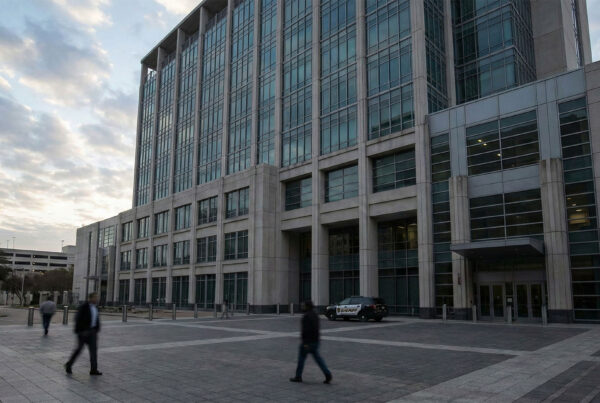If you or someone you love is facing criminal charges, one of the first questions that comes to mind is: “How much will this cost?” It’s a fair question, and an important one. Legal fees can seem overwhelming, especially when you’re already dealing with the stress and uncertainty of criminal prosecution. But understanding what you’re paying for—and why attorney fees vary so dramatically—can help you make the most important decision of your life.
The uncomfortable truth is that there’s no simple answer to what criminal defense costs. A misdemeanor DWI case might cost a few thousand dollars, while a complex federal fraud prosecution or capital murder case can run into six figures or more. The variation isn’t arbitrary—it reflects the dramatic differences in what these cases demand from your legal team.
Understanding Fee Structures
Criminal defense attorneys typically use one of three fee structures, and understanding these models helps you know what to expect when you begin discussing representation.
- Flat fees are common for routine cases where the scope of work is relatively predictable. A straightforward DWI case, simple drug possession charge, or misdemeanor assault might be handled on a flat fee basis. The attorney quotes you a single price that covers everything from your initial consultation through trial, if necessary. Flat fees provide certainty—you know what you’re paying upfront. However, truly flat fees are becoming less common because criminal cases rarely unfold in entirely predictable ways. What starts as a simple case can become complicated quickly when unexpected witnesses surface, when forensic evidence needs to be challenged, or when the prosecution adds charges.
- Hourly rates are more common in complex cases where it’s impossible to predict how much work will be required. Federal cases, white collar prosecutions, multi-defendant conspiracies, and cases involving extensive discovery almost always involve hourly billing. Experienced criminal defense attorneys in major metropolitan areas typically charge between three hundred and eight hundred dollars per hour, with rates at the higher end for attorneys with decades of experience handling high-stakes cases. Partners at established firms with national reputations may charge even more. These rates can seem shocking until you consider what you’re actually purchasing: not just an attorney’s time in court, but their decades of experience, their reputation with prosecutors and judges, their network of expert witnesses and investigators, and their support staff’s work on your behalf.
- Retainer arrangements combine elements of both approaches. You pay a substantial retainer upfront—often tens of thousands of dollars for serious felony cases—and the attorney bills against that retainer at their hourly rate. When the retainer is depleted, you replenish it. This structure protects both the client and the attorney: the client knows the attorney won’t begin work without adequate funding, and the attorney knows they’ll be compensated for the work they perform. For major cases, initial retainers can range from twenty thousand dollars for a serious state felony to one hundred thousand dollars or more for complex federal prosecutions or capital murder cases.
What Drives the Cost of Criminal Defense?
Several factors determine what you’ll pay for legal representation, and understanding these variables helps explain why fees vary so dramatically from case to case.
The severity of charges is perhaps the most obvious factor. A misdemeanor shoplifting case requires far less time and resources than defending against federal drug trafficking charges. As penalties increase—from fines and probation to years or decades in prison to life without parole or the death penalty—the stakes demand correspondingly more thorough preparation, investigation, and expertise. You’re not just paying for legal work; you’re investing in avoiding catastrophic consequences.
Case complexity matters enormously. Some cases involve straightforward facts, limited evidence, and few witnesses. Others involve thousands of pages of documents, dozens of witnesses, complex financial records, scientific evidence, digital forensics, and legal issues that require extensive research and motion practice. A federal fraud case might involve reviewing tens of thousands of emails, bank records, and business documents. A murder case might require hiring forensic pathologists, blood spatter experts, ballistics specialists, and DNA analysts. Each additional layer of complexity adds time and expense.
The attorney’s experience and reputation significantly affect cost, and for good reason. An attorney who has tried a hundred murder cases and won most of them charges more than someone fresh out of law school. An attorney with a national reputation charges more than someone with only local experience. This isn’t just ego—it’s market recognition of proven results. Prosecutors know which attorneys are truly dangerous in a courtroom, and they adjust their plea offers accordingly. Judges know which attorneys command respect and attention. That reputation has real value that translates into better outcomes.
The stage of your case when you hire an attorney affects total cost. The earlier you hire experienced counsel, the more opportunities your attorney has to influence the outcome before charges are even filed. Pre-indictment representation—when you’re under investigation but haven’t been charged yet—can be expensive, but it’s often the most valuable legal work because it might prevent charges from being filed at all. If charges are filed, early representation allows your attorney to begin investigating immediately while evidence is fresh and witnesses are available. Hiring an attorney on the eve of trial after a year of pretrial proceedings means paying someone to quickly learn a case that should have been worked on for months.
Geographic location plays a role as well. Attorneys in major metropolitan areas like Houston, Dallas, or Austin typically charge more than attorneys in smaller cities, reflecting higher overhead costs and market rates. Federal criminal defense attorneys generally charge more than state court attorneys because federal cases are almost always more complex and carry harsher penalties.
What's Included in Attorney Fees?
Understanding what your attorney fee covers helps you appreciate the value you’re receiving. It’s not just paying someone to show up in court a few times.
Your attorney’s time includes initial consultations, client meetings, investigation and preparation, legal research, drafting motions and briefs, court appearances, negotiations with prosecutors, trial preparation, and the trial itself. Even seemingly simple tasks consume substantial time. Reviewing police reports, witness statements, and discovery materials in a serious felony case can take dozens of hours. Preparing for cross-examination of a single expert witness might require hours of research into their methodology, credentials, and prior testimony.
Many cases require support from investigators, expert witnesses, and other professionals. Private investigators locate and interview witnesses, conduct background research, photograph crime scenes, and gather evidence that police never bothered to collect. Expert witnesses provide specialized knowledge in areas like forensic pathology, toxicology, ballistics, digital forensics, psychiatry, accident reconstruction, and countless other fields. These professionals don’t work for free—a qualified expert might charge ten to thirty thousand dollars or more for their analysis and testimony. Your attorney fee typically covers the attorney’s time, while investigation and expert costs are billed separately, but some attorneys include limited investigation in their quoted fee.
Administrative work that never makes it into a courtroom still adds value to your case. Staff time spent organizing discovery, scheduling, communicating with you and your family, filing documents, and managing case logistics all contributes to effective representation. The infrastructure that supports your defense—office space, legal research databases, support staff, technology—represents significant overhead that’s built into attorney fees.
The Hidden Cost of Inadequate Representation
Perhaps the most important factor in considering attorney fees is understanding what inadequate representation actually costs. The cheapest attorney is rarely the best value, and choosing representation based primarily on price can be the most expensive mistake you’ll ever make.
A criminal conviction follows you forever. Even minor convictions can prevent you from getting jobs, professional licenses, housing, student loans, and government benefits. Felony convictions eliminate your right to vote, possess firearms, and hold certain jobs. Sex offense convictions require lifetime registration. Immigration consequences can include deportation even for legal permanent residents. The economic impact of a criminal record can cost you hundreds of thousands of dollars in lost earnings over your lifetime.
Consider the mathematics of inadequate representation. If hiring an experienced attorney costs fifty thousand dollars more than a budget option, but that experienced attorney’s track record and reputation results in charges being reduced or dismissed, you’ve saved yourself potentially decades in prison and a lifetime of collateral consequences. The higher fee isn’t an expense—it’s an investment that pays returns for the rest of your life.
We’ve seen countless cases where clients initially hired less expensive counsel, only to come to us months or years later asking if anything can be done to fix their case. Sometimes it can, but often critical opportunities have been lost. Witnesses have disappeared, evidence has been destroyed, and strategic options that existed early in the case are no longer available. The cost of hiring experienced counsel the second time, on top of what was already paid, often exceeds what hiring the right attorney from the beginning would have cost.
Public Defender vs. Private Attorney: Understanding the Difference
Many people wonder whether they should simply use a public defender and save the expense of private counsel. Public defenders are often skilled, dedicated attorneys who care deeply about their clients. However, the reality of public defender workloads means they simply cannot provide the same level of attention and resources that private counsel can offer.
Public defenders in many jurisdictions handle hundreds of cases simultaneously. They have minimal budgets for investigators and experts. They lack the time for the extensive preparation that serious cases demand. They’re overworked, underpaid, and stretched impossibly thin through no fault of their own. The system is broken, and defendants pay the price.
Private attorneys, particularly those at established firms with substantial resources, can dedicate the time your case deserves. They can hire the best investigators and experts. They can spend weeks preparing for trial instead of days. They can pursue every possible angle, explore every defense, and challenge every piece of evidence. This difference in resources and attention translates directly into better outcomes.
If you can afford private counsel, the question isn’t whether you can afford to hire an experienced attorney—it’s whether you can afford not to.
Fee Arrangements and Payment Options
Understanding how to pay for criminal defense helps make quality representation more accessible. Most criminal defense attorneys are flexible about payment arrangements because they recognize that legal fees represent a significant financial burden.
Many attorneys accept payment plans, particularly for cases with retainers in the tens of thousands of dollars. Rather than requiring the full retainer upfront, they may allow you to pay a portion initially and then make monthly payments as the case proceeds. This requires trust on both sides—the attorney trusts you’ll continue paying, and you trust they’ll continue working diligently on your case.
Some attorneys accept credit cards, though this often involves processing fees. Despite those fees, credit cards can provide flexibility, particularly if you have access to substantial credit limits or zero-interest promotional periods. Some clients use multiple credit cards or personal loans to finance their defense.
Family members often contribute to legal fees. Parents pay for their children’s defense. Siblings, spouses, and extended family members pool resources to hire quality counsel. While this can feel uncomfortable, family members understand that the consequence of inadequate representation affects everyone who cares about you.
Asset liquidation sometimes becomes necessary. Clients sell cars, liquidate retirement accounts, take out home equity loans, or sell property to pay for their defense. This seems drastic, but these assets have far less value than your freedom and your future. A house can be replaced. A retirement account can be rebuilt. Time in prison cannot be recovered.
Some attorneys will not begin work without substantial payment upfront, and this isn’t greed—it’s a practical reality of how legal work functions. Attorneys have been burned too many times by clients who disappear when payment comes due but still expect continued representation. The retainer ensures the attorney can dedicate substantial time to your case without worrying about whether they’ll be paid.
What to Ask About Fees During Your Consultation
When meeting with potential attorneys, having a candid discussion about fees helps you make an informed decision and avoid surprises. Most experienced criminal defense attorneys offer free initial consultations, and fee discussions are a normal part of these meetings.
Ask specifically how the attorney bills. Is it a flat fee, hourly rate, or retainer arrangement? What’s included in the quoted fee, and what costs extra? Will investigation and expert witnesses be billed separately? Are there additional charges for filing fees, copying, or other administrative costs? Getting these details upfront prevents misunderstandings later.
Inquire about payment plans and whether the attorney requires the full retainer upfront or will work with you on a payment schedule. Ask what happens if the retainer is depleted—do you need to replenish it immediately, or is there flexibility?
Discuss realistic cost expectations for your specific type of case. An experienced attorney can usually give you a reasonable range based on their experience with similar cases. While they can’t quote an exact figure if billing hourly, they can tell you whether to expect total fees of ten thousand, fifty thousand, or a hundred thousand dollars.
Most importantly, don’t make your decision based solely on price. The cheapest attorney is rarely the best value, and the most expensive attorney isn’t always the best fit. Consider experience, track record, communication style, and your comfort level with the attorney alongside cost considerations.

The Value Proposition: Why Experience Matters
At DeGuerin & Dickson, we’ve represented clients in some of the most serious, complex, and high-profile criminal cases in Texas and across the nation. Our fees reflect our five decades of experience, our proven track record of success, our investment in thorough investigation and expert witnesses, and our unwavering commitment to achieving the best possible outcome for every client.
We’ve secured acquittals in cases where conviction seemed certain. We’ve negotiated favorable plea agreements in cases where trials would have been devastating. We’ve gotten cases dismissed before charges were even filed. We’ve won appeals that freed wrongly convicted clients. These results don’t happen by accident—they happen because we invest the time, resources, and expertise that serious criminal defense demands.
When you hire our firm, you’re not just hiring an attorney—you’re hiring a team. You’re hiring decades of courtroom experience. You’re hiring relationships with prosecutors and judges built over years of professional practice. You’re hiring access to the best investigators and expert witnesses in their fields. You’re hiring a reputation that commands respect and makes prosecutors think twice before proceeding to trial.
More importantly, you’re hiring attorneys who refuse to accept defeat. We don’t cut corners. We don’t settle for good enough. We fight tirelessly for every client because we understand that your case isn’t just another file to us—it’s your life, your future, and your freedom.
Making the Decision
Facing criminal charges is overwhelming, and financial concerns about attorney fees add to that stress. But consider this: every day you wait is a day when critical evidence might be lost, witnesses might disappear, and strategic opportunities might pass. The cost of delay often exceeds the cost of immediate action.
If you’re facing serious criminal charges, you owe it to yourself and your family to consult with experienced counsel. Most initial consultations are free and confidential. There’s no risk in learning what quality representation costs and what it can achieve for your case. There’s enormous risk in making assumptions about what you can or cannot afford without having that conversation.
Your freedom, your reputation, your family, your career, and your future are at stake. The question isn’t what quality legal representation costs—it’s what the consequences of inadequate representation would cost you over the remainder of your life.
Contact DeGuerin & Dickson today for a confidential consultation. We’ll review your case, explain your options, discuss realistic expectations for outcomes and costs, and help you understand what comprehensive criminal defense actually involves. Don’t let cost concerns prevent you from exploring your options. The consultation is free, and the insight you gain could be invaluable.















